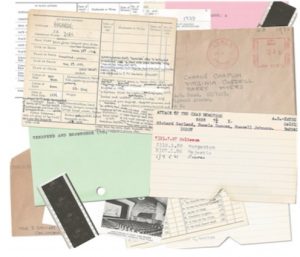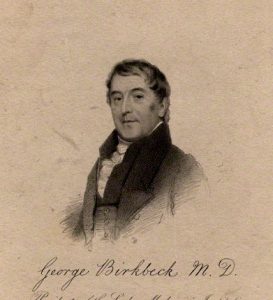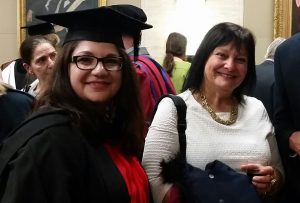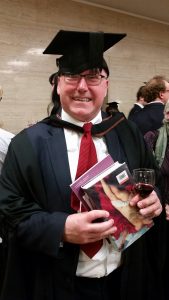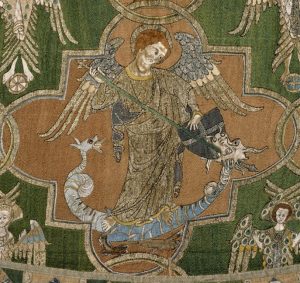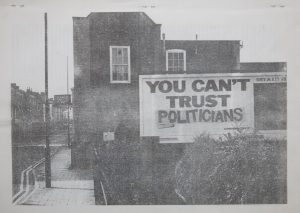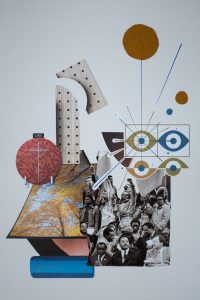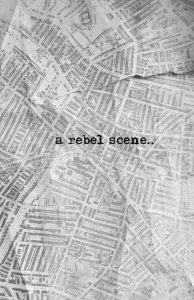I heard earlier that the first of the workshops in our new Careers and Employability programme, designed especially for students in the History of Art department, went very well yesterday afternoon. Alex Jones led a session on ‘Careers in Arts’, and dropped me a line to say that attendance was very good, and that he’d enjoyed meeting our engaged and lively students! If you haven’t signed up for these workshops as yet, then do take another look at the full details here – and register for your free places at forthcoming sessions on Eventbrite. This programme is open to all our students in the department, so whether you’re on the Cert HE or Graduate Certificate, a BA or MA programme, or are currently an MPhil/PhD student, if you’re thinking about developing your Career in the Arts, then do make the most of this great opportunity. The next workshop will be ‘Articulate your Story’, on 30th November (4-5pm, Keynes Library)…
* * * * *
I also want to use this posting to remind all our MA and MPhil/PhD students in History of Art about the London Art History Society Research Fund for 2016-17. We gave out details about this at the induction evenings and via email – but do keep this fund in mind. It’s available to help support our postgraduate students in undertaking research towards their dissertations. Students from any of our Masters programmes are able to apply for up to £150, and MPhil/PhD students for up to £300 – we allocate the money on a first come first served basis, so do apply before it runs out! If you need financial support to undertake a trip to an archive, or a collection, or if you could do with help with costs such as photographing works of art which you’re currently researching, then do put in an application. Full details are available here. We’re very grateful indeed to the London Art History Society for generously providing these funds to help our postgraduate students – and don’t forget that they organise a rich programme of events, which I highly recommend you keep an eye on! This coming Saturday (26th November), for example, Dr. Glyn Davies, curator of late medieval sculpture at the V&A and co-organiser of the museum’s current Opus Anglicanum exhibition, will be giving a lecture following the Society’s AGM: ‘The Power of Pygmalion: Secular Stories on Medieval Caskets of Ivory and Bone’.
* * * * *
I hope everyone has had a chance to drop in and see the latest exhibition in the Peltz Gallery, as they’ve been coming in and out of the building over the last few weeks? A Museum of Everyday Life: Cinephilia and Collecting has been on since 7th October – but, if you haven’t yet had a chance to look around, it will be there until 27th January 2017. The display consists of a varied array of intriguing objects from the collections of the Cinema Museum – a museum of cinematic ephemera in Kennington, South London, which has to be visited by appointment. These are the relics of dedicated film enthusiasts – their personal archives and records – their indexes and scrapbooks. Graham Head, an amateur projectionist in the 1940s and 50s, with a cinema in his back garden in Hove, Brighton, for example, would clip squares of celluloid from every film he showed. These are collected in little brown envelopes. Vic Kinson, meanwhile, built up a collection of around 36,000 index cards, recording details of film stars: their careers, and their personal lives. You can read more about the exhibition here, in Sight & Sound. Fascinating – and not to be missed!
* * * * *
I want to end this blog by drawing everyone’s attention to a wonderful development that was publicly announced today. Our own Leslie Topp, together with a number of other colleagues from across Birkbeck, has been working hard for a long time to get something called the ‘Bridges to Study’ programme off the ground. This is a package of support for asylum seekers and refugees living in London. Birkbeck will be offering funded places on undergraduate and postgraduate certificate courses across the College to 20 asylum seekers per year. This provides a vital opportunity to study for a group who have serious problems accessing educational opportunities in this country. Rebecca Murray, from the charity Article 26, explains some of the key difficulties in the news story which went live today:
“Their immigration status means asylum seekers are treated as international students, so they have to pay tuition fees at an international rate. Secondly, asylum seekers aren’t eligible for student loan support from the Student Loans Company, meaning no financial backing to pay their tuition fees or maintenance. They also have to navigate what can seem a bewilderingly complex academic system and culture.”
Not only will Birkbeck be providing funding for places on these courses of study, but the College will also be offering a programme of additional support alongside, to help the students settle into life at Birkbeck, and the UK educational system more broadly. The Master of Birkbeck, Professor David Latchman, has declared this to be a “fitting continuation” of the mission established by our founder, George Birkbeck, nearly 200 years ago: “to bring education to every Londoner who wants to better themselves, regardless of means or background.” You’ll have seen George Birkbeck’s face around the main Malet Street building, as well as his famous declaration (well, famous to us in the College, anyway!): “Now is the time for the universal benefits of the blessings of knowledge.” Mr. Birkbeck would be proud – and we are very proud indeed of the commitment and hard work of Leslie and her colleagues, which has helped to make a truly inspiring idea a reality.
. . Category: Uncategorized

